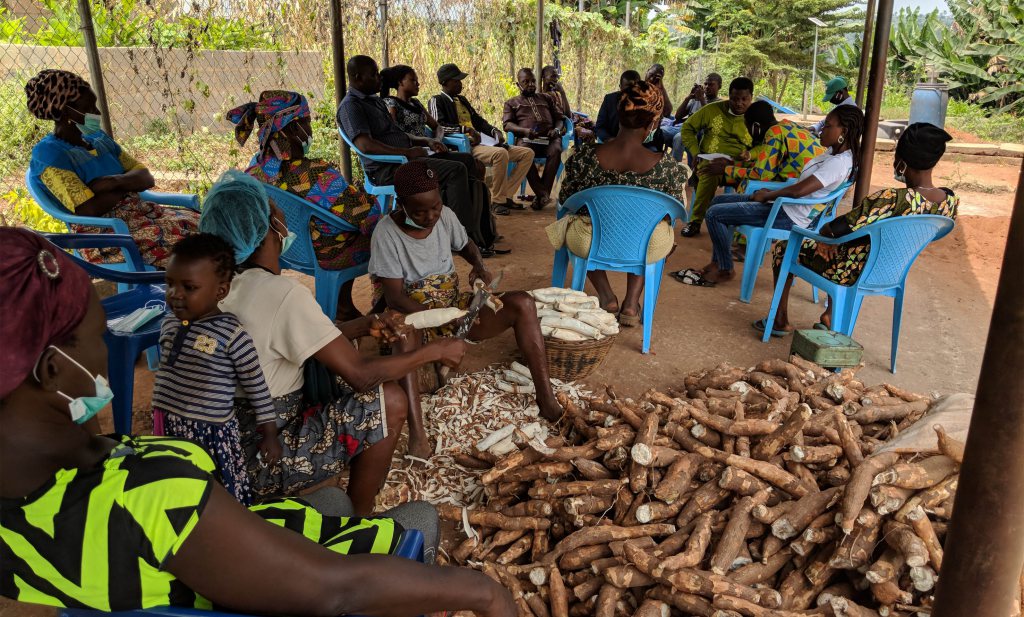“It is important that many smallholder farmers have access to patient capital in order to modernize farming, thereby increasing their productivity, production efficiency and profitability”. In this week's edition of Letter to my Farmers, Nigerian food expert and agronomist Babatunde Olarewaju discusses the importance of access to funding for smallholder farmers and food security.
Over the years, it has been difficult for farmers to transition from farming to agribusiness, even with the awareness creation and information dissemination strategies deployed by many agricultural agencies. Generally, smallholder farmers in many developing countries are still engaged in farming, even using traditional implements and tools. One of the major constraints of these farmers is the access to funding, especially patient capital. Agribusiness requires sufficient capital and resources for a specified duration in order to be successful in this century. And it is important that many smallholder farmers have access to patient capital in order to modernize farming, thereby increasing their productivity, production efficiency and increased profitability.
Achieving food security is beyond what only farming can do, rather incorporating the business of agriculture is the surest route for food sufficiency in developing countries. This can be achieved through access to patient capital and appropriate knowledge. Therefore, every stakeholder must be proactive to ensure that farming is no longer viewed as a means to alleviate poverty but a profitable venture that those who engage in it can truly earn a prosperous living from it.
Yours-in-service
Babatunde
In his weekly column Letter to my Farmers, Babatunde Olarewaju writes about personal experiences and insights on farming, curated through working with smallholder farmers in Africa. Last week's letter is available here.
Every stakeholder must be proactive to ensure that farming is no longer viewed as a means to alleviate poverty but a profitable ventureSadly, there are many factors contributing to poor access to finance for smallholder farmers. These factors include but are not limited to the following- weak social safety net, poor financial credit units of farmers, lack of appropriate database of smallholder farmers, strict regulations that exclude smallholder farmers, high interest rate, religious belief on loan facility and negative perceptions on loan facility amongst others. It is important that some of these factors are resolved through policies that encourage providing loan facility for farmers at a low interest rate and for a considerable period of time (at least 5 years), having up-to-date database of smallholder farmers in all states and districts, ensure that farmers are financially included (especially their annual production and sales should contribute to their financial credit points), and farmers re-orientation on loan facility.
Achieving food security is beyond what only farming can do, rather incorporating the business of agriculture is the surest route for food sufficiency in developing countries. This can be achieved through access to patient capital and appropriate knowledge. Therefore, every stakeholder must be proactive to ensure that farming is no longer viewed as a means to alleviate poverty but a profitable venture that those who engage in it can truly earn a prosperous living from it.
Yours-in-service
Babatunde
In his weekly column Letter to my Farmers, Babatunde Olarewaju writes about personal experiences and insights on farming, curated through working with smallholder farmers in Africa. Last week's letter is available here.
Related




One other element might be that banks in general see primary agricultural activities als relatively high risk compared to other business activities. Most often agricultural activities result in production of non-destinctive commodities, produced by small producers with hardly any market power. In the production proces farmers have to deal with high risks related to nature like land, soil, water, weather and diseases. Farmers in general have limited control over these risks by themselves, which makes predictability of output low. As finance providers mainly base their lending decisions on the expected level and the predictability/stability of cash flow from operations, finance providers will stay reluctant as long as farmers stay unable to manage those risks adequately.
Thank you @Jur for your contribution. I agree with you as regards the demand for money as many farmers association or co-operatives don't have solid business plan (or well thought out business case). It is important to note that every lending organisations have their interests and it would be important to note these peculiarities.
Thank you once again for your contribution
Without denying the importance of the abovementioned factors hampering access to finance, there is another one that is not explicitly mentioned. Although high interest rates might point to scarcity, the problem in Africa is not so much that (credit) money is scarce: there are no supply problems. An important bottleneck exists also on the demand side: the absence of sound proposals (i.e., business plans) that make it attractive for a bank to lend money to farmers and/or their cooperatives. Hence the initiatives by some development organisations to help African farmers' cooperatives become 'bankable', by strengthening their capacity to formulate and execute solid business plans. Without those plans, serious lending will not occur.